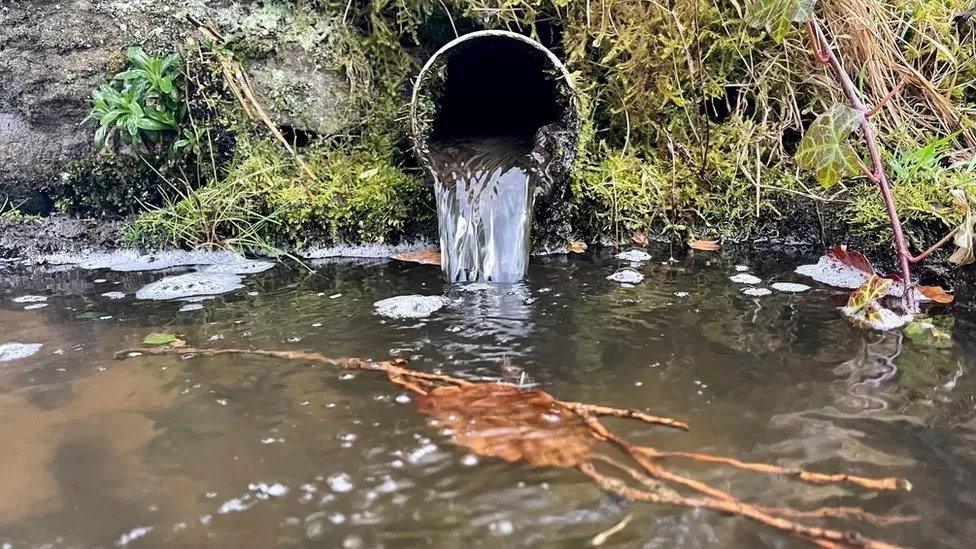Riverfly monitoring first for Berkshire's Englefield Estate
- Published
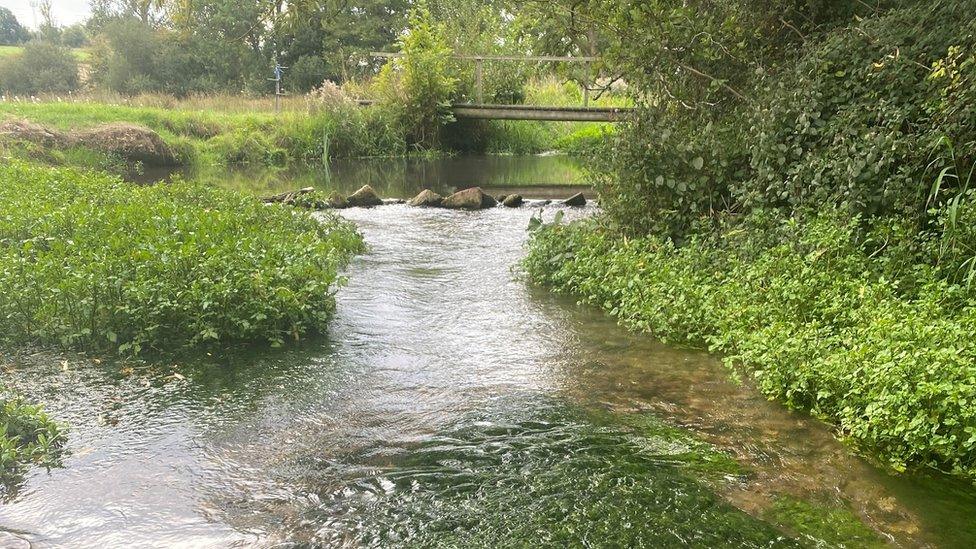
A team of volunteers will help scientists collect valuable data from the River Pang
A riverfly monitoring project has launched in an effort to gather valuable river water quality data.
The information will be used to assess potential pollution incidents on the River Pang in Berkshire.
The project will see a team of volunteers working in a partnership between Englefield Estate and Action for the River Kennet (ARK) charity.
Data from caddisfly larvae, mayfly larvae and stonefly larvae provide key biological indicators of river health.
Dr Liz Mattison, the estate's education and environment officer, said: "You can't really plan to improve or restore any aspects of the river if you don't have any baseline information about what its current state is."
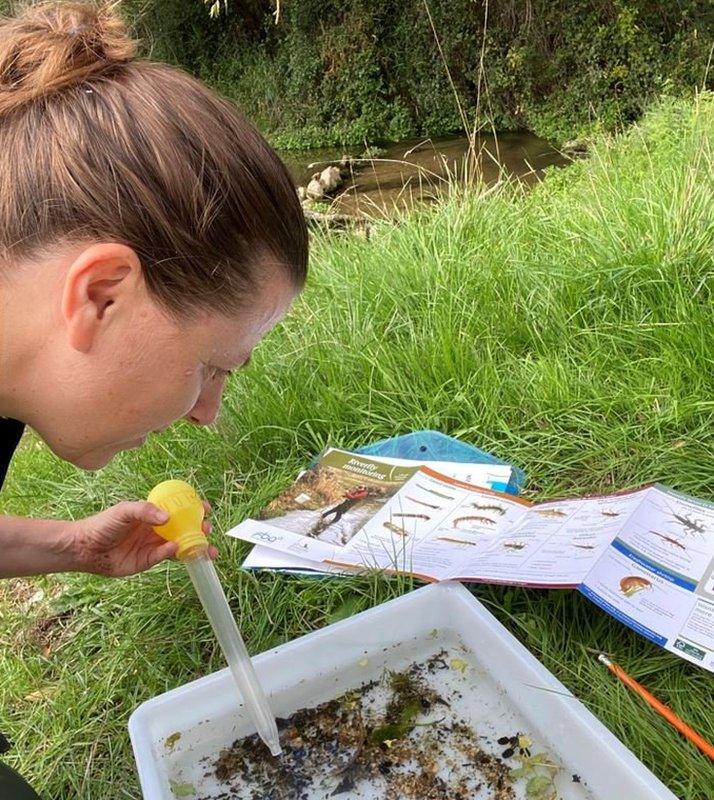
Dr Liz Mattison inspects one of the first samples
Riverfly monitoring is a national citizen science initiative overseen by The Riverfly Partnership, where members of the public volunteer to help scientists collect valuable data.
Through regular surveys, teams can assess river water quality and get a warning of any otherwise unseen pollution incident.
ARK has been training land managers, river keepers and volunteers at workshops, enabling them to identify and count indicator species of freshwater invertebrates, to assess the health of Britain's river systems.
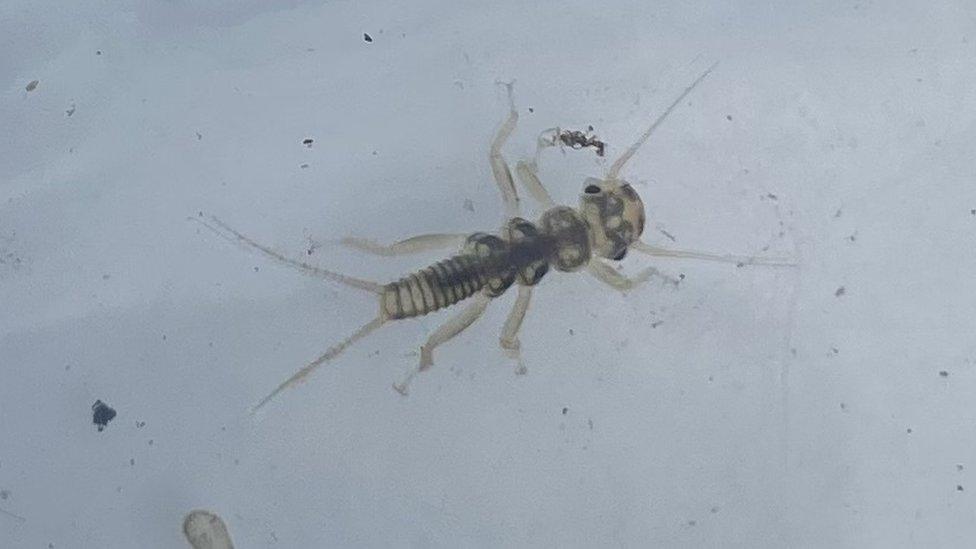
Data from stonefly larvae (pictured) and other types of riverfly can provide key biological indicators of river health
Dr Mattison, who carried out the first monthly monitoring session on the River Pang, said: "As a land manager with a 2km (1,2 miles) stretch of the River Pang on the estate, we obviously want to do everything we can to improve the health and water quality of this wonderful chalk stream, and riverfly monitoring is a crucial element of that aim."
In July 2013, ARK riverfly monitoring volunteers were the first to discover what the charity described as a "catastrophic pesticide pollution event" on the River Kennet, in Marlborough, Wiltshire.
The public were advised to not enter the river and the event sparked extensive research into the impact of pollution on river health.
Anna Forbes, who oversees ARK's riverfly programme, said: "It goes to prove the value of this kind of long-term monitoring.
"Our trained volunteers are the eyes and ears on the river and are bringing in important data, ensuring we can do everything in our power to protect the health of our rivers."

Follow BBC South on Facebook, external, Twitter, external, or Instagram, external. Send your story ideas to south.newsonline@bbc.co.uk, external.
Related topics
- Published23 July 2015
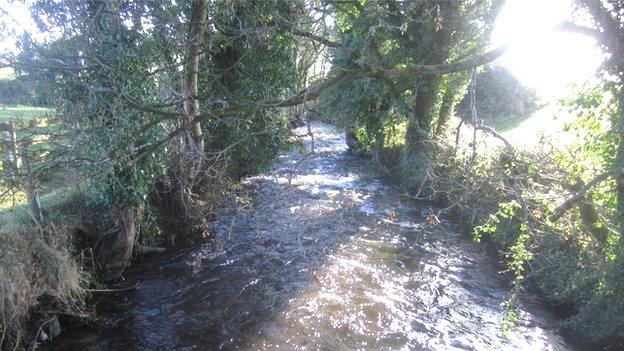
- Published27 September 2022
